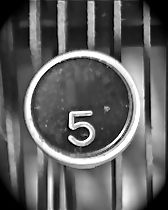5 HOT BOOKS: A Bestselling Photo Album of the Obamas, Cartoons, and More
/1. Obama: An Intimate Portrait by Pete Souza Foreword by Barack Obama (Little, Brown)
Photography books don’t usually hit No. 1 on the New York Times best-seller list, but Souza’s handsome collection of more than 300 of his iconic images of President Barack Obama, culled from his vast collection, is special. These pictures, ranging from a tense moment in the Situation Room to an intimate glimpse of the photogenic Obama family reveling in one another’s company, seem to tap into a nostalgia for the Camelot era. Souza covered Obama extensively for the Chicago Tribune before he was tapped as chief official White House photographer, and in this exquisitely produced book, Obama’s presidential years sparkle.
2. Cartoon County: My Father and His Friends in the Golden Age of Make-Believe by Cullen Murphy (Farrar, Straus & Giroux)
In Murphy’s childhood corner of southwestern Connecticut, producing comic strips was a distinctive family business, and in his enchanting memoir and cultural history, Vanity Fair editor-at-large Murphy illuminates how the arcane knowledge, trade secrets, and apprenticeships involved with cartooning and illustrating harked back to the medieval guilds. For years, Murphy wrote Prince Valiant, the comic strip illustrated by his father, John Cullen Murphy (who had apprenticed with Norman Rockwell) and in Cartoon County he has now vivified his father’s world in living color. “I was drawn powerfully to this world of my father’s,” he writes, “yet remember knowing even then that its days were numbered and that before long it would disappear.”
3. Prairie Fires: The American Dreams of Laura Ingalls Wilder by Caroline Fraser (Metropolitan)
In her engrossing biography, Fraser challenges the myths of self-reliance in Wilder’s autobiographical Little House on the Prairie novels and television series. Fraser draws on her experience as editor of the Library of America edition of the Little House books and finds them to be “not only fictionalized but brilliantly edited, in a profound act of American myth-making and self-transformation.” Dependent on federal assistance, opposed to the New Deal, anti-Semitic and devoted to Ayn Rand, Wilder and her domineering, and perhaps bipolar, daughter collaborated on the Little House stories, which “transformed poverty into pride, showing readers the heroism of endurance” in a great American drama of reinvention.
4. Ramp Hollow: The Ordeal of Appalachia by Steven Stoll (Hill and Wang)
In his powerful history of Appalachia, Stoll begins with the early European settlers, and traces the greed and man-made destruction that has so eviscerated the region and forced its citizens into abject dependence. “Ramp Hollow,” is a tributary of an abandoned coal seam in a hamlet outside Morgantown, West Virginia. As the extraction industry reordered the landscape, the workers whose ancestors had lived off the land became hostages to the logging and mining industries. While Stoll insists that historians should not be writing legislation, he does favor democratic socialism and offers a “thought experiment” in the form of “The Commons Communities Act,” that would combine public and communal property and reinvent Appalachia as a makeshift economy, as it was practiced for two centuries by mountain farmers.
5. The Story of Arthur Truluv by Elizabeth Berg (Random House)
Berg’s utterly charming new novel features Arthur, who visits his dead wife’s grave every day for lunch with her. He makes an unlikely connection with another cemetery visitor – motherless, woeful teenager Maddy – while also avoiding Lucille, his busybody neighbor who happens to excel in the baked goods department. Author of nearly 30 books, Berg excels in creating little worlds like Grover’s Corners in Thornton Wilder’s Our Town, and when Maddy gets into trouble, she, Lucille, and Arthur – whom she nicknames “Truluv” for his devotion to his late wife – forge a deep bond that transcends generations.










